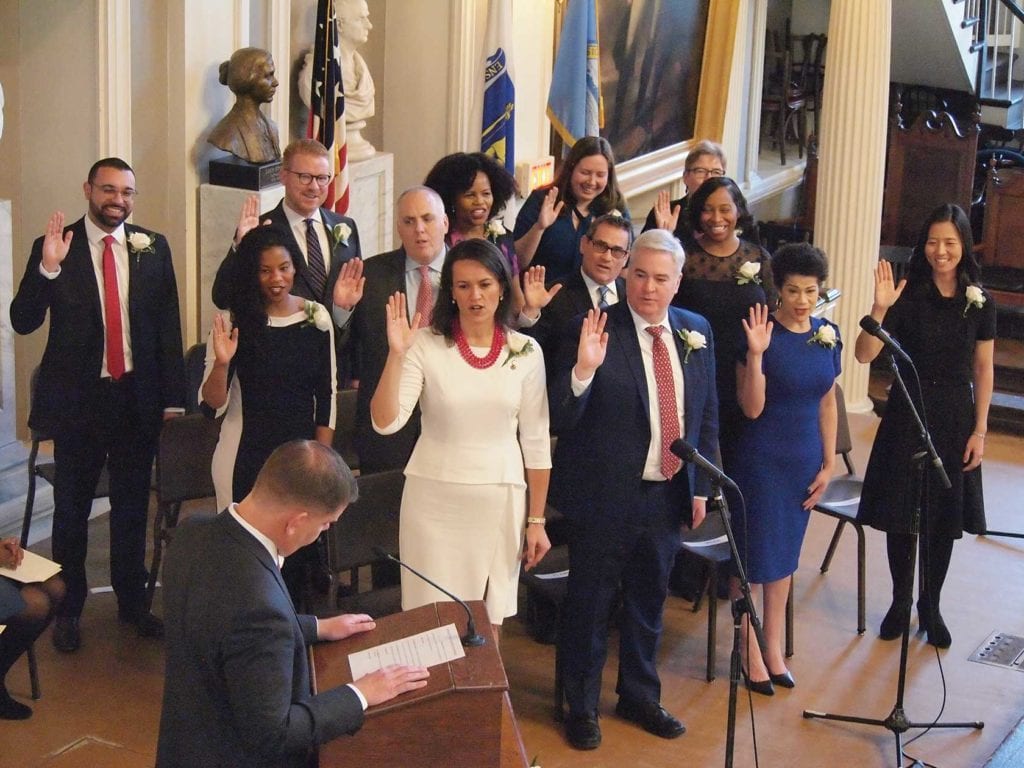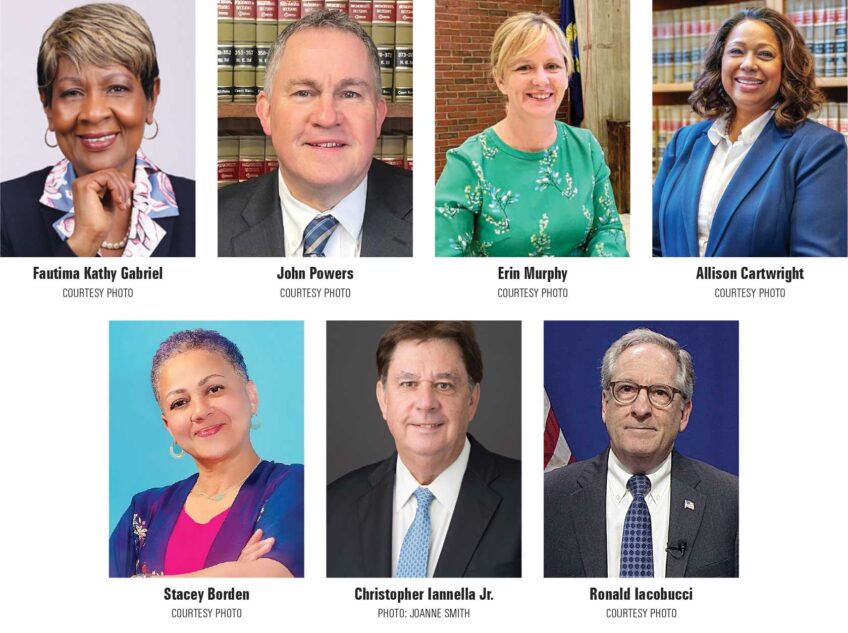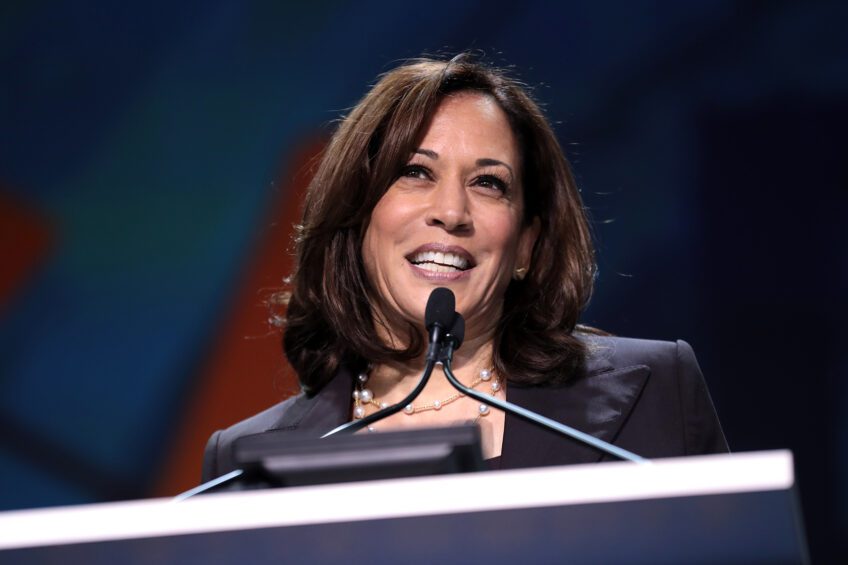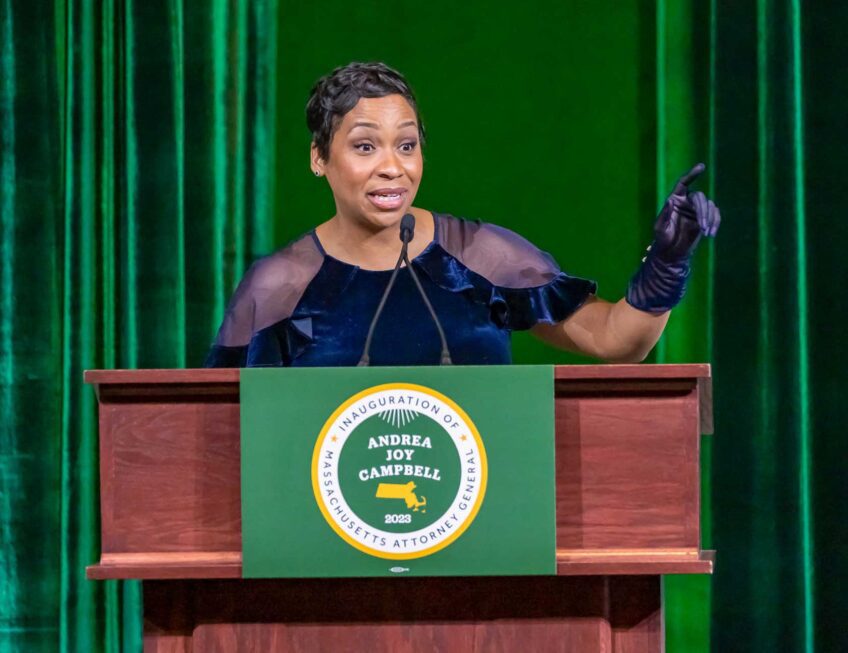Boston’s most diverse city council ever is sworn in
Women, people of color are leading legislative body

Monday marked a historic precedent as four new Boston City Council members were sworn in at Faneuil Hall, forming the most diverse Council in the city’s history.
For the first time ever, a majority of the Council seats are held by women and people of color.
New councilors include Liz Breadon of District 9, the first openly gay woman to serve on the Council, and at-large Councilor Julia Mejia, the first Afro-Latina immigrant elected. The other new members joining Mayor Martin Walsh at 10 a.m. to be sworn in were Kenzie Bok of District 8 and Ricardo Arroyo of District 5.
“This is not only a historic council,” Walsh said, “but a historic time for our city.”
Former District 7 councilor Tito Jackson said, “I am very excited about this most diverse, most beautiful, soon to be most effective Council.”
Kim Janey was voted in as president of the Council, the second African American woman to win the presidency, following Andrea Campbell of District 4. Janey was elected in a near-unanimous vote, with only District 3 Councilor Frank Baker abstaining.
Mejia said she hopes that what she brings to her work is a reflection of her identity.
“I’m an Afro-Latina, I’m a single mom, I’m an immigrant, and I grew up in poverty,” she said. Mejia said that a lot of people feel disconnected from government, adding that the council should be led by the people it represents — the people that put her in office.
The council now must focus on the most urgent issues in the coming year. Janey said that the challenges facing Boston require “bold action.”
Many councilors agreed that the most pressing matter in the city is the lack of affordable housing. Boston has one of the highest income inequalities of any U.S. city and is also one of the most expensive cities in which to live.
“I think the city is really feeling the housing crisis,” Bok said. She added that control over the city budget is one of the Council’s “great powers,” and said that the budget can address the crisis in an effort to make the city more livable.
Breadon also acknowledged the lack of accessible transportation in the city. She said that there were not enough investments in transportation, and that impoverished families are increasingly forced to drive into the city for work.
These difficulties also inconvenience Janey, who does not have a car and instead frequents the bus. Janey encouraged advocacy for issues out of the council’s control, including the state-managed MBTA. She proposed a free bus system, saying that transportation affordability is a matter of economic justice.
“We keep raising the fares on the people that are most vulnerable,” she said.
Janey said she plans to honor her commitment to “equity, transparency and accountability” by creating a city council committee for PILOT, or payment in lieu of taxes. Universities must especially be held accountable, she said.
There continues to be ample debate over whether the Boston School Committee, whose members currently are all appointed by the mayor, should revert to being an elected body. Walsh maintains that board members should be appointed, yet councilors are divided over the issue. Advocacy groups pushed Council candidates to stake out a position on the school committee debate in the months leading up to the November election.
“It’s crazy that we’re the only city in this state without an elected school committee,” said Ziba Cranmer, a member of the group Jamaica Plain Progressives.
Janey that the Council’s number one priority should be “equity and inclusion.” She said that significant gaps endure throughout the city, and these disparities are visible regardless of where you look.
“It’s not enough to have diversity,” Janey said. “We need full inclusion.”
Her vision for 2020 is to “lift up those who have been left behind.”








